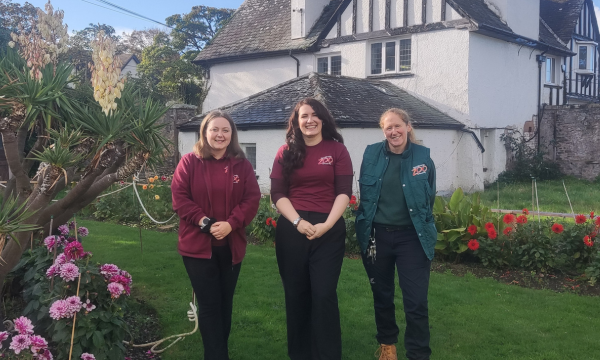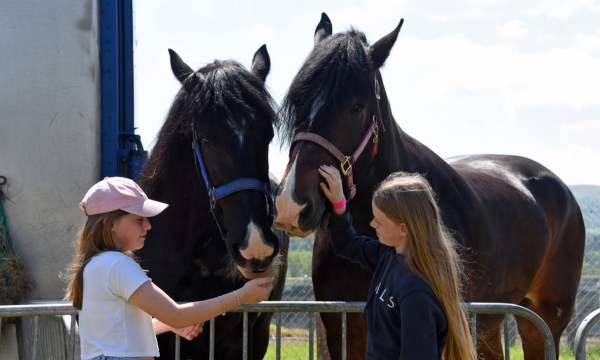
Tourism leaders have expressed concerns over a proposed licensing scheme for self-catering visitor accommodation and are urging the Welsh Government not to rush the legislation through.
Under the plans, providers of certain types of holiday accommodation in Wales will need to meet a set of standards showing that the accommodation is fit for visitors. The new licensing scheme will cover self-contained, self-catering accommodation such as holiday cottages and flats.
Providers will need to meet a ‘fitness for visitor accommodation’ standard to get a licence by showing they have gas and electrical safety certificates and insurance, along with smoke and carbon monoxide alarms.
The Development of Tourism and Regulation of Visitor Accommodation (Wales) Bill initially focuses on the self-catering sector. The Welsh Government says this has seen “significant expansion in recent years and forms the majority of accommodation businesses in Wales, not least as a result of the growth of online platforms such as Airbnb and Booking.com”.
An Explanatory Memorandum published by the Welsh Government for the Bill says:
“This part of the sector also includes accommodation that might once have been used, or might be used in future, as homes.
“The Bill aims to better align the regulation of this type of visitor accommodation with the regulation of the private rented sector, to maintain and promote the standard of the accommodation.
“This will also help to address concerns that for some property owners it may seem easier to operate as a short-term let than as a long-term tenancy, which can lead to the erosion of long-term residential housing stock in some communities.”
It also says:
“The Bill will complement other measures introduced by the Welsh Government to address the challenges arising from a concentration of second homes and short-term holiday lets in particular areas in Wales.
“A secondary outcome of this Bill will be to align more closely regulation of self-catering visitor accommodation with the regulation of the private rented sector, ensuring consistent standards for that accommodation, and monitoring compliance with those standards.”
The Bill allows future Welsh Governments to extend licensing to other types of accommodation.
Rowland Rees-Evans, Chair of the Wales Tourism Alliance (WTA), said the WTA had always been supportive of registration but added that the organisation still had a number of reservations about the Bill.
“We recognise that a registration scheme is long overdue and the data and information that will be collected will be invaluable for the Welsh Government, Visit Wales, local authorities and the industry as a whole,” he said. “However, the licensing section of this Bill probably has far more questions than answers at the moment.
“The industry has for a long time asked the Welsh Government for a level playing field but we now see that this is only going to be implemented for the ‘self contained' and ‘self catered' part of the industry.
“It was the tourism industry's wish that we have a simple licensing scheme that could be operated with the least amount of fuss. Now we have a scheme that is being rushed through far too quickly, costs are wholly unrealistic, and we will probably have more problems than necessary.”
Rowland added that accommodation owners should already ensure that all relevant safety certificates are in place and up to date, saying that failure to do so could invalidate insurance policies.
Jim Jones, CEO of North Wales Tourism, called on the Welsh Government to “slow down” and implement new rules impacting the tourism sector one step at a time.
He said:
“North Wales Tourism represents over 1,500 businesses and has recently undertaken extensive member engagement to evaluate both opportunities and risks relating to the proposed licensing. We had quite a mixed response, with several members welcoming measures to boost visitor safety, quality and professionalism, such as mandatory safety checks, training and a public directory.
“But many warn of excessive red tape, and with feelings that tourism and hospitality in Wales is being bled dry without reinvestment it’s only a matter of time before businesses start eyeing relocation to competitor destinations.
“There are several key concerns, which include short licence durations, inconsistent application across accommodation types and impractical requirements for seasonal or small providers. We would like to see longer licences, not annually, tailored campsite rules, minimum accessibility standards and robust impact assessments to prevent market reduction and business exits.
“We know safety must come first, but overregulation on top of the bombardment of new and proposed policies risks stifling one of North Wales’ economic success stories.”
Joshua Miles, Head of FSB Wales, said:
“We support a licensing system that creates a level playing field for all providers, but we urge Welsh Government to prioritise proportionate, low-burden implementation to avoid unintended costs that could have a negative impact and potentially push small operators out of business.
“Key questions remain around compliance costs, training needs, and enforcement measures to protect compliant businesses, and ensuring minimum standards are reasonable and consistent. Integrating this system with the visitor levy into a single, user-friendly national digital platform would be a game-changer for easing the regulatory burden on businesses. With a tight timeline, we call for robust consultation to deliver a high-quality framework that truly supports Wales' tourism SMEs.”
Mark Drakeford, the Cabinet Secretary for Finance and Welsh Language, said:
“Visitors are at the heart of this Bill. By reassuring them that visitor accommodation in Wales meets the standards they would expect, we can build confidence in the industry and support our vital tourism sector even further.
“Many businesses already do the right things. By requiring all businesses to show they meet the same standards, we're creating fair competition that protects both visitors and responsible businesses.”











